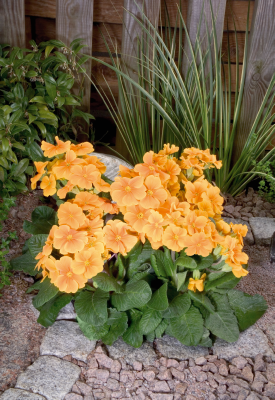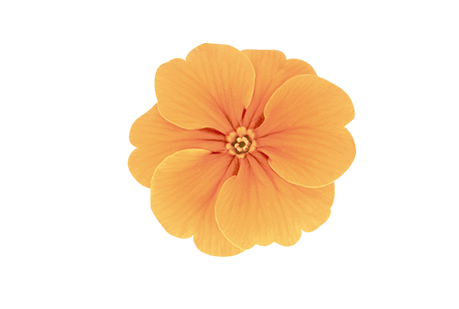

Crescendo® Orange
Item no.: PE1004E- Vigorous, uniform series for spring production
- Intense flower colors
- Extremely winter hardy, also for Northern climates
- Production under cooler temperatures
Technical Guide: Click here
All information in our technical guide is based on our own trials and would therefore be as guideline only. Detailed cultivation aspects vary depending on climate, location, time of year and environmental conditions. Benary expressly disclaims any responsibility for the content of such data/information and makes no representation or warranty for the cultivation of any products listed. It is recommended that growers conduct a trial of products under their own conditions.
- Crop Time
- Spring: 26 - 30 weeks
- Height ∅
- 10 ″ / 25 cm
- Width ∅
- 7 ″ / 18 cm
- Exposure
- Sun - Partial shade
- Seed Form
- BeGreen Priming
- Hardiness Zone
- 4-7
- Best Uses
- Bedding, Landscape, Pot Plant
Culture guide
Usage
Attractive pot plants, bedding
Sow time
Outdoor forcing: March-May; Indoor forcing (frost free): Mai-June
Sowing method
1 seed per plug
Germination
10-14 days at 65 °F (18 °C). Avoid temperatures above 68 °F (18 °C) during germination. Maintain relative humidity above 95 %. Sow seeds in well drained media low in nutrients with a pH between 5.8-6.2. Cover seed lightly with vermiculite. Light plug trays during Stage I.
Growing on
Transplant plugs into 4-4.5" (10-11 cm) pots containing a well-drained media with a pH range of 5.8-6.5. Grow on at 59-63 °F (15-16 °C) for 3-4 weeks. Fertilize at 100-150 ppm nitrate nitrogen in a well-balanced mix. Maintain light levels below 3000 f.c. until fully rooted. Once established, lower temperatures to 40 °F (5 °C) or lower for 6 weeks to induce uniform flower initiation. Once buds are set, gradually increase temperatures to 50-54 °F (10-12 °C). Avoid excessive temperatures, as poorer plant and flower quality will result.
Media
Use a well-drained, growing substrate with 15-30 % clay, 0-20 % parts (e.g. bark, perlite), 0,5-1,5 kg/m³ complete balanced fertilizer, 0-3 kg/m³ slow release fertilizer (3-6 months), iron-chelate, micronutrients, pH: 5.8-6.2.
Temperature
Grow at 10-15 °C. In winter indoors frost free at 3-5 °C or outdoors. Outdoor fleece cover needed. For wintering the leaf rosette should be well developed. Alternating temperatures (10-12 °C day- and 1-2 °C night temperature) for 4-6 weeks promotes considerably the flower initiation for a frost free cultivation. The plants start (from CW 45 earliest) to grow for 12-15 weeks at 10-14 °C. Avoid higher temperature, because high temperatures reduce the plant quality and the foliage will grow too much. For cut flower production in cold greenhouse set up the plants in intervals. Flowering pots can be stored in cold storage-room for 4 weeks at 0,5-2 °C.
Fertilization
Low-moderate fertilization levels are required. Fertilize the crop weekly with 150-200 ppm nitrogen (at 0 kg/m³ slow release fertilizer in substrate), using a complete balanced fertilizer. In August use a potassium balanced fertilizer (N: K₂O-ratio: 1:1,5). Take care of a good potassium supply, because potassium deficiency can a be cause for leaf necrosis. Avoid high ammonium and high nitrogen levels. High levels are the cause for a too big foliage. Prevent magnesium deficiency by applying magnesium sulphate (0,025 %) 1-2 times and in case of iron deficiency apply iron-chelate for 1-2 times. Treat nitrogen deficiency (yellow foliage) with urea foliage fertilization. The roots are sensitive to high salt levels (above 2 g/l) in substrates. Avoid high fertilizer concentrations, it is advisable to fertilize several times with low concentrations weekly. Take care of pH value in substrate and if necessary adjust the pH value in substrate with lime or with acidic ferrous fertilizer. For outdoor cultivation nutrition losses due to rainfall have to be taken into consideration.
Stage I Starts with the radicle breaking through the testa. The roots are touching the medium. Ends with fully developed cotyledons.
Stage II Starts from fully developed cotyledons. Ends with the fully developed true leaf or true leaf pair.
Stage III Starts from the fully developed true leaf or true leaf pair and ends with 80% of the young plants being marketable.
Stage IV All young plants are ready for sale and in the process of being hardened off. This stage lasts about 7 days.
The cultural recommendations are based on results from trials conducted under Central European conditions. Different conditions in other parts of the world may lead to deviations in results achieved.








